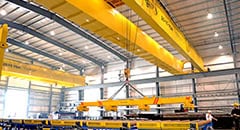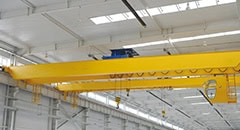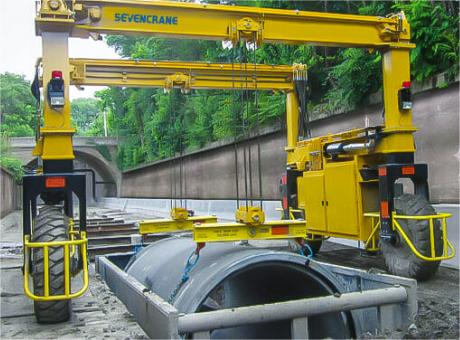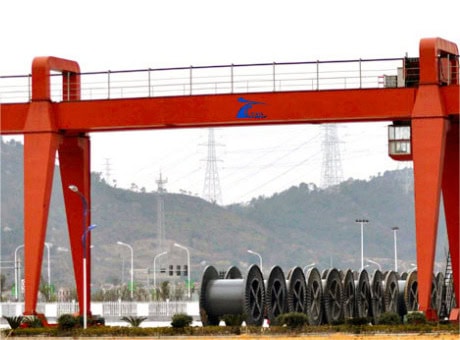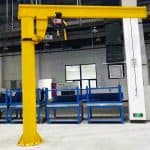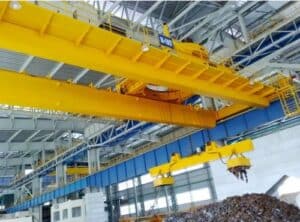EOT cranes are essential equipment in a variety of industries, allowing for easy and efficient lifting and moving of heavy objects. EOT cranes offer a variety of benefits, but understanding how they compare to other types of cranes can help businesses make an informed decision when choosing a crane that fits their specific needs.

The main components of a single beam eot crane include:
Bridge: The main structure that spans the work area, consisting of the girder, end car, and walkway.
Hoist: The lifting mechanism that lifts, lowers, and moves the load.
Trolley: A wheeled device that travels along the bridge, carrying the hoist and load.
End car: An attachment at each end of the bridge that holds the wheels and provides movement.
Controls: The combination of switches, buttons, and levers used to operate the crane.
Runway: The track or beam that supports and guides the movement of the crane.
Electrical control panel: Houses the electrical components that control the operation of the crane.
Crane busbar: The conductive strip that powers the electrical components of a single beam eot crane.
Wireless remote control: A wireless device that allows the operator to control the crane from a distance.
Pendant: A handheld control unit that connects to the crane via a cable and is used to operate the crane.
Crane hook: A metal attachment used to lift and move loads.
Electric overhead cranes are versatile and efficient solutions for lifting and moving heavy objects in a variety of industries. They are available in different configurations and designs and can be customized to specific operational requirements. By understanding the differences between electric overhead cranes and other types of cranes, businesses can make an informed decision to select the crane that best suits their needs. SEVENCRANE has extensive experience in the crane industry and can help you select and specify the crane system that best suits your unique needs, ensuring efficiency, safety, and cost-effectiveness.


